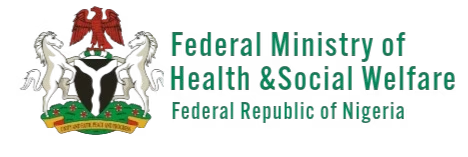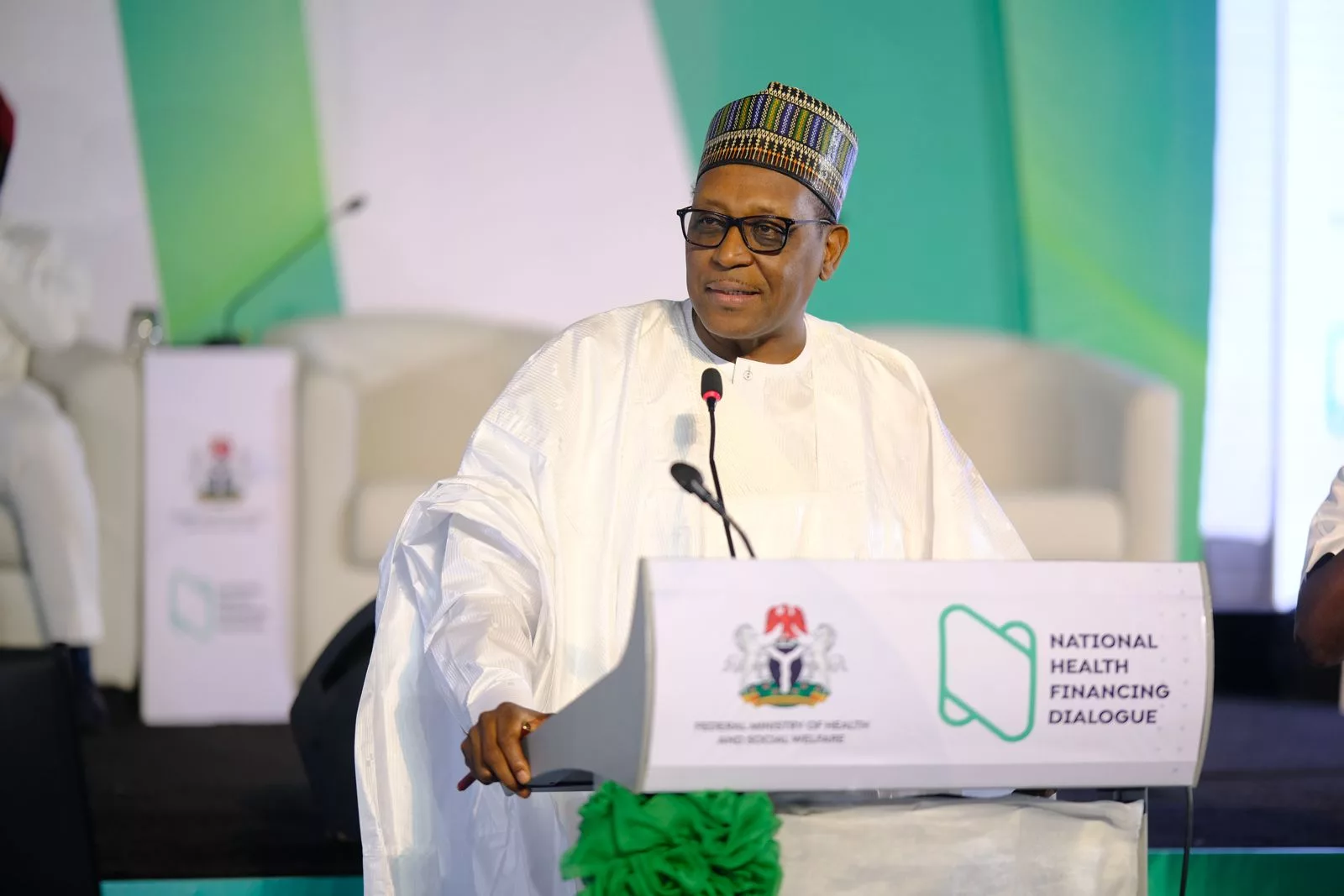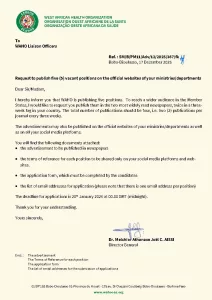For four straight days, the air in the crowded Abuja conference hall at Transcorp Hilton was thick with anticipation. Every seat was taken. Government officials, civil society leaders, global partners, health commissioners, and other stakeholders filled the venue. Online, thousands more tuned in. It was the National Dialogue on Health Financing, and for many, it was more than just another meeting. It was a watershed moment in Nigeria’s long and difficult journey toward sustainable health care.
“We must forge a narrative that is uniquely ours,” emphasized Coordinating Minister of Health and Social Welfare, Professor Muhammad Ali Pate CON. “This is not just about treating diseases but about promoting health, preventing illness, and ensuring that every Nigerian, mothers, children, workers, can access life-saving care without being pushed into poverty.”
His words set the tone for the entire dialogue, reflecting a shift from episodic interventions to long-term structural reforms aimed at universal coverage.
Among the most passionate voices was that of Dr. David Walker, a Ph.D. student from the University of Illinois, who introduced himself simply: “I am a leader, a friend, and a brother.” Representing a younger generation of health advocates, Walker praised Nigeria’s bold fiscal reforms but stressed that the ultimate test lies in impact. “Without a viable public health system, you cannot claim to have a modern and progressive economy,” he warned.
His words echoed the sentiment that health care is not charity, it is a strategic investment. Investments in oncology centers, dialysis subsidies, obstetric care, and primary health networks are not just medical upgrades, but drivers of economic stability and human dignity.
Dr. Walker put it, “We must not just make health investments larger, we must make them sustainable.”
The Senate also had a strong presence in the dialogue through Senator Ipalibo Harry Banigo, who chairs the Senate Committee on Health. Representing Rivers West Senatorial District, Senator Banigo is a medical doctor, a public health specialist, and the first female deputy governor of Rivers State.
Her intervention was both technical and compassionate, shaped by years of experience in clinical practice and governance. She reminded participants that while 74% of Nigeria’s health expenditure currently comes from private pockets, reforms are underway to rebalance this through public financing, health insurance, and donor support. “Insurance is critical in giving Nigerians access to health care they need, when they need it,” she said.
“We must protect the poorest with premium subsidies, while enforcing long-term contributions to make the system sustainable.” She acknowledged that subsidy removals and fiscal tightening have been painful but necessary steps to restore investor confidence and free up resources for health and education.
Professor Pate, described by many as the engine behind these reforms, highlighted the government’s progress in expanding insurance enrollment to 20 million Nigerians, with the ambitious goal of covering 44 million by 2030, the largest insurance pool in Africa. Under President Bola Tinubu’s directive, mandatory health insurance is now being enforced across federal ministries, departments, and agencies. Primary health care networks are expanding, with thousands of facilities receiving direct financing to ensure rural access. For the most vulnerable, reforms are already life-saving: free emergency obstetric services, fistula repair programs, subsidized dialysis, and a Catastrophic Health Insurance Fund covering cancer and spinal surgeries.
The dialogue repeatedly returned to one central theme: health is national security. Without it, economic stability is impossible. Participants called for the domestication of national health laws at state level to ensure alignment, innovative financing mechanisms including diaspora contributions and private sector funds, reducing out-of-pocket spending by households, and community-led accountability tools to monitor how health funds are used. International comparisons, particularly China’s rapid expansion of public health financing, served as both inspiration and challenge. If Nigeria can leverage its improving fiscal position, reduce deficits, and prioritize health spending, it could replicate similar progress.
Amid technical discussions of GDP ratios and fiscal compacts, participants reminded each other why they were gathered: the lives of ordinary Nigerians. “What is the dignity of someone who is sick, in pain, and not able to afford care?” one delegate asked. “There is nothing to be proud of if a nation allows its people to suffer when solutions exist.” That reminder grounded the conversation, keeping the focus on the human side of reform rather than just the financial calculations.
As the conference closed, applause filled the hall. The banners came down, but the message was clear: this was not to be another talk shop. Nigeria has laid a strong policy foundation for health financing. Now, execution is everything.
Now, the task ahead is monumental, but so are the stakes. If Nigeria can mobilize its resources, harness private partnerships, and protect the most vulnerable, it will not only transform its own health system but set a continental benchmark for universal health coverage.
“Healthcare is not a cost, it is an investment. When people are healthy, they can work, they can learn, and they can contribute to national security and prosperity,” Pate declared, adding that transparency, accountability, and evidence-driven policies would remain at the heart of President Bola Ahmed Tinubu led administration’s health reforms.
Alaba Balogun
Deputy Director/Head, Information
& Public Relations
9 September 2025



